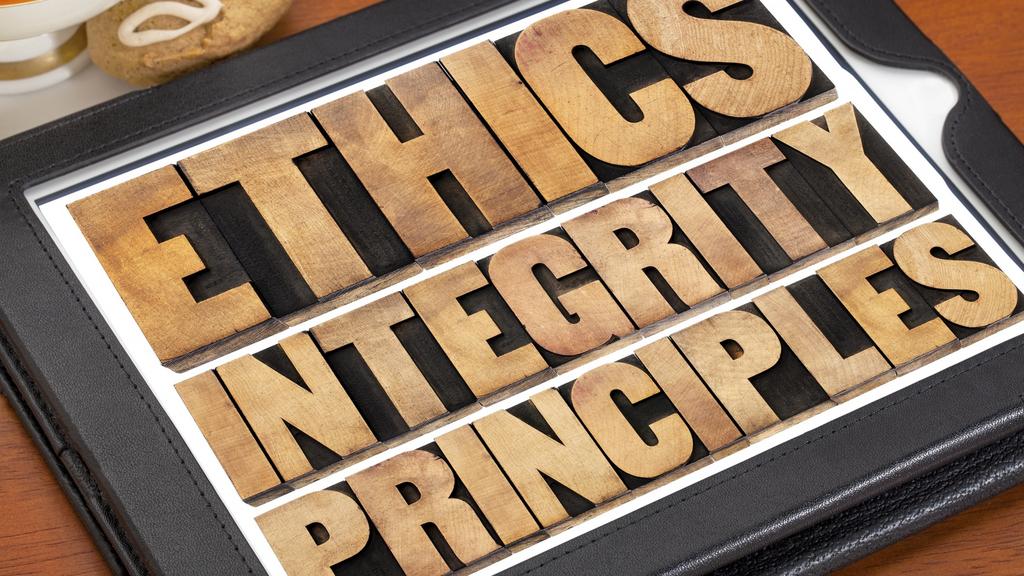Article originally published in the American City Business Journals on September 26, 2017
Reputation is defined by Merriam-Webster as “overall quality or character as seen or judged by people in general.” Reputation is within the top 30 percent of the words whose definition is searched on the Merriam-Webster website.
Ethics, meanwhile, is in the top one percent of the words searched, indicating its importance within our society. People do not want to work for or deal with leaders or companies whose reputations are tarnished or who are not ethical.
Reputation and ethics are key determinants to building a sustainable competitive advantage and becoming a preferred provider to a market.
Why do so many organizations and people act in a way that damages their reputations? To cite just two examples, Uber and Wells Fargo (as well as their former CEOs) have damaged their reputations this past year. Here’s a look at some of what it cost them.
Uber
Uber has had a host of scandals including sexual harassment that went unaddressed within the company. These scandals have hurt Uber’s reputation and market share. Uber’s major investors, not the company’s board, forced founder Travis Kalanick to step down as CEO of the company in June.
Neither Kalanick nor the board realized the importance of an ethical culture in building and operating Uber as a transformational change agent of the ride-hailing industry.
In the latest incident adversely impacting Uber’s reputation, Transport for London, the governmental organization responsible for the city’s transportation system, recently announced that it would not renew Uber’s operating permit.
TfL issued a statement that said in part, “TfL considers that Uber’s approach and conduct demonstrate a lack of corporate responsibility … [including the] use of Greyball in London – software that could be used to block regulatory bodies from gaining full access to the app and prevent officials from undertaking regulatory or law enforcement duties.”
This is not the first time Uber has been accused of using Greyball to avoid detection by law enforcement, either.
Dara Khosrowshahi, who was named Uber’s new CEO in August, issued a statement — first published in London’s The Evening Standard — following the TfL decision that said, “While Uber has revolutionized the way people move in cities around the world, it’s equally true that we’ve got things wrong along the way. On behalf of everyone at Uber globally, I apologize for the mistakes we’ve made.”
Wells Fargo
Wells Fargo’s reputation was seriously damaged when, in September 2016, it was revealed that bank branch employees opened as many as 2 million bogus customer deposit and credit card accounts to meet unrealistic sales goals. Recently it was revealed that the number of bogus accounts was as high as 3.5 million.
The Consumer Financial Protection Bureau fined Wells Fargo $185 million and ordered the bank to reimburse customers $5 million in fees they were charged due to these unethical practices.
In a Sept. 21, 2016 CNN Money article headlined, “ I called the Wells Fargo ethics line and was fired,” reporter Matt Egan wrote that the news organization spoke with a number of Wells Fargo employees who were fired for reporting unethical practices on the ethics hotline and to the bank’s human resources department.
In a subsequent CNN Money report, Eagan wrote, “Wells Fargo says it has found evidence that at least some of these whistleblower retaliation claims published by CNN Money and elsewhere may have merit.”
Wells Fargo CEO John Stumpf was forced to step down in October 2016. Senator Elizabeth Warren (D-Mass.) has called for the entire Wells Fargo board to resign. The bank has suffered significant reputational damage and loss of business, not to mention the damage to the careers of those lower level employees who reported the wrongdoing.
Personal reputation
The reputations of companies often bounce back over time due to a change in leadership that brings a change in culture.
Damage to personal reputations, however, may never be fully repaired. The most important thing any of us really have is our personal reputation. We need to protect it at all costs.
Your personal reputation depends on your values and ethics and on doing the right thing.
As a board member serving on both for-profit and nonprofit boards, I view my reputation and that of my fellow board members through the eyes of a new director joining the board. I never want a new board member to ask, “Why haven’t the incumbent board members done their jobs?”
The most admired leaders are those who have a personal reputation for acting ethically and establishing a culture in which their employees do the same. The organizations with these types of leaders are the ones that flourish over the long term.
Stan Silverman is founder and CEO of Silverman Leadership. He is a speaker, advisor and nationally syndicated writer on leadership, entrepreneurship and corporate governance. Silverman earned a Bachelor of Science degree in chemical engineering and an MBA degree from Drexel University. He is also an alumnus of the Advanced Management Program at the Harvard Business School. He can be reached at Stan@SilvermanLeadership.com.

